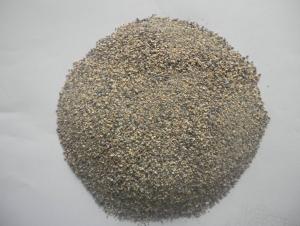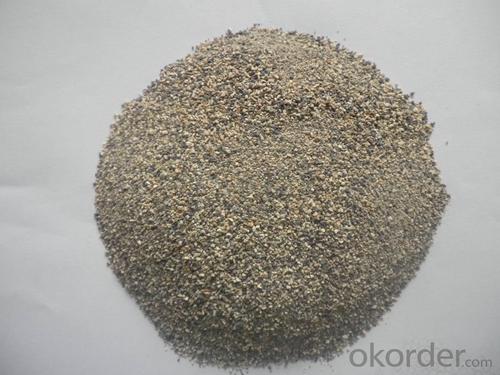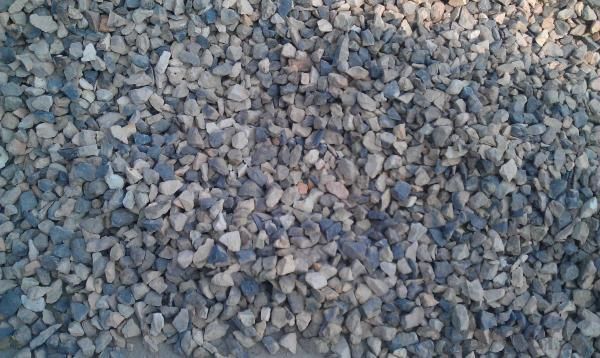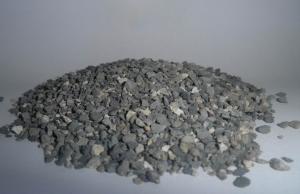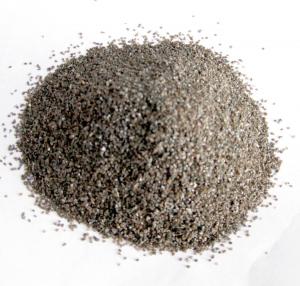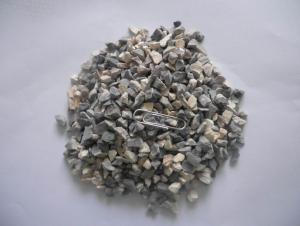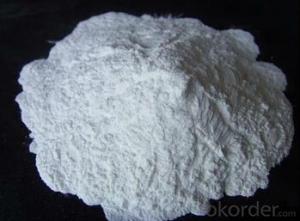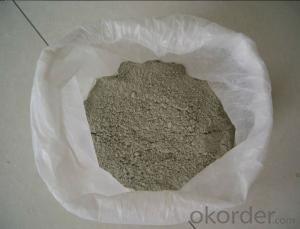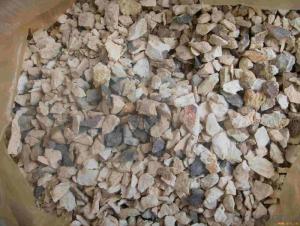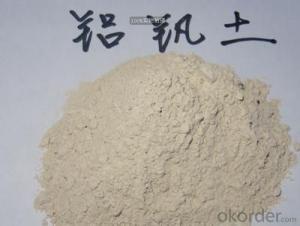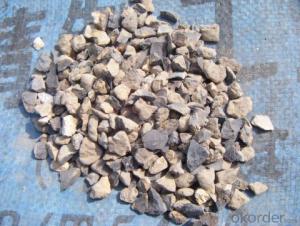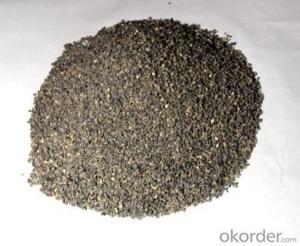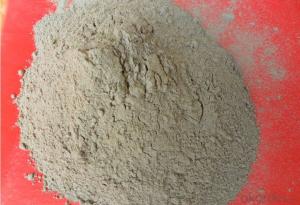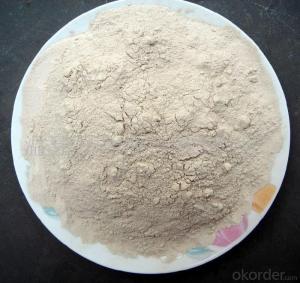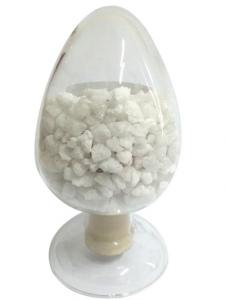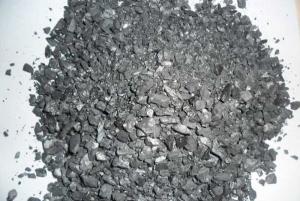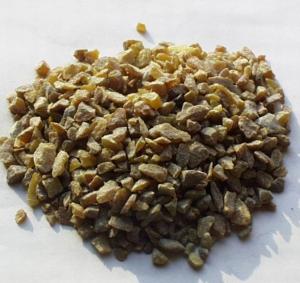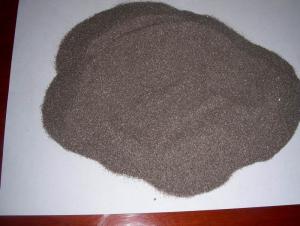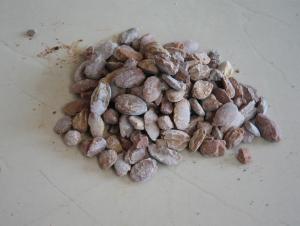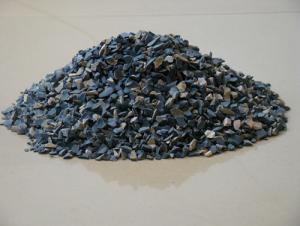Calcined Bauxite A - Raw Materials for Refractory
- Loading Port:
- China Main Port
- Payment Terms:
- TT or LC
- Min Order Qty:
- 1*20ft m.t.
- Supply Capability:
- 1000tons per year m.t./month
OKorder Service Pledge
OKorder Financial Service
You Might Also Like
Specifications of Calcined Bauxite A
Grade | AL2O3 | FE2O3 | TIO2 | K2O+Na2O | CaO+MgO | Bulk density |
75 | 75min | ≤3.0 | ≤4.0 | ≤0.3 | ≤0.5 | ≥2.70 |
80 | 80min | ≤3.0 | ≤4.0 | ≤0.3 | ≤0.5 | ≥2.80 |
85 | 85min | ≤2 | ≤4.0 | ≤0.3 | ≤0.5 | ≥3.00 |
86 | 86min | ≤2 | ≤4.0 | ≤0.3 | ≤0.5 | ≥3.10 |
87 | 87min | ≤2 | ≤4.0 | ≤0.3 | ≤0.5 | ≥3.20 |
88 | 88min | ≤1.8 | ≤4.0 | ≤0.25 | ≤0.5 | ≥3.25 |
90 | 90min | ≤1.8 | ≤4.0 | ≤0.25 | ≤0.5 | ≥3.30 |
Size: as customer’s requirement
Packing: packed in big bag, 1.25mt/bag; or pack as customer's requirement.
Introduction of Calcined Bauxite A
Calcined bauxite is one of the principal ore of aluminum. Calcined bauxite contains hydrous aluminum oxides and aluminum hydroxides, formed through the laterization of aluminous rocks in tropical and subtropical areas .calcined bauxite is obtained by calcining (heating)superior grade bauxite at high temperature (from 85OC to 1600C) .this removes moisture thereby increasing the alumina content. compared to an alumina content of about 57%to 58%in raw bauxite, calcined bauxite has an alumina content of 84%to88%.the heating is carried out in rotary kilns.
Applications of Calcined Bauxite A
calcined bauxite is typically classified according to its intended commercial application, such as abrasive ,cement ,chemical, metallurgical, and refractory .as raw material for use in high alumina and super duty refratory bricks and shapes ,plastics ,castable refratory, motors, gun mixes, ramming mixes, abrasive grains and other products.
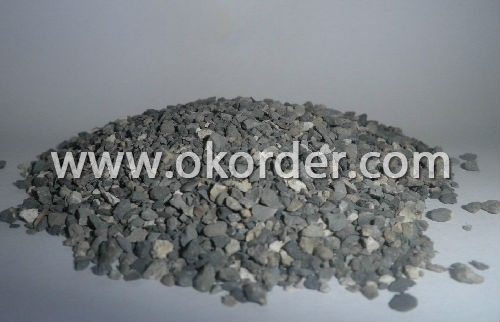
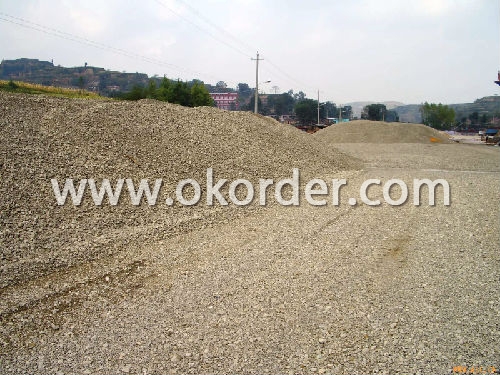
- Q: The primary problem, does the gas permeable brick is fired refractory bricks(refractory) ?
- gas permeable brick have two types:built-in type and external mounted type. the built-in gas permeable brick and the external mounted gas permeable brick are usually made by fire burning, and small part of bricks are made by the low temperature heat.
- Q: How long does it take for refractory cement to solidify?
- 1. First you should be aware of the concepts of condensation and condesation time. Refractory cement belongs unshaped refractories, which when added water or liquid binding agent to mix, the agitation material will gradually lose thixotropy or plasticity and become in a state of solidification, thus is solidified. The time needed to finish the process is called solidification time. The whole process is divided into initial and final set. When beginning to lose plasticity called the initial setting, when called plasticity completely lost the final setting. 2. For refractory cement, the solidification time depends on the matching of the material and the parts and using methods. Under normal circumstances, in order to meet the requirements of time of construction, the initial set time should be no shorter than 40min, and the final set time should be no longer than 8H 3. There are also some exceptions. When refractory cement is used for spraying and injection operation together with other refractory castable, the set time is required as short as possible, sometimes flash set is required to prevent the occurrence of peeling or collapse of the spraying layer.
- Q: What are the basic requirements of continuous casting for molten steel? What are the requirements for refractory materials?
- The rapid development of the technology of continuous casting refractories so the corresponding development and improvement in variety and quality, continuous development of refractories for the continuous casting billet continuous casting production and quality have a significant impact. Especially, the completion and operation of Baosteel have greatly promoted the technological progress of refractory materials in China, and the refractory materials for continuous casting have made great progress both in variety and in quality.
- Q: How long is the duration of fire resistance of hollow glass magnesium board
- Hollow glass magnesium board features fire prevention, waterproof, tasteless, non-toxic, not frozen, not rot, not crack, unchanged, non burning, high strength and light weight, convenient construction, long service life and so on, and it has more characteristics among products of the same kind nationwide. Its fire resistance limit is 0.65℃.
- Q: Who knows about the fire endurance of sintered shaly hollow bricks?
- 1. after roasting at high temperature of more than 1200 degrees, shale burned bricks in construction works can be free from expanding with heat and contracting with cold. 2. masonry walls can be plastered with no needs of any anti-cracking, reinforcement measures, and walls will not bulge and crack, which can reduce the construction cost, as well as are preferred building materials of frame structural engineering. 3.They have good sound insulation and thermal insulation performances, are one of the green building materials that the state currently promotes. 4. They have high intensity. The average compressive strength of them is up to 15.8, which matches with M7.5 cement mortar that has advantages of low water absorption, and good anti efflorescence performance.
- Q: What kind of materials can be tested their electrical resistivity in the current refractory industry?
- Graphite, Magnesium Oxide, and alumina are all feasible.
- Q: What is neutral refractory? Can refractory suppliers tell the main components of it?
- The material using Al2O3, clay, bauxite and corundum as the main components is neutral material; the material using MgO and CaO as the main components is basic material; the material using SiO2 as th emain component is acidic material.
- Q: Who knows what material is in the center of fireproof rolling curtain?
- Material and the type high silica cloth as curtain, side rails, with galvanized steel in its end and stainless steel two kinds of materials with double curtain in the end I hope my answer can help to you
- Q: what is steel fire door made of ?
- 1. fire resistance steel door has steel made door frames, door leaf framework and door panels. if the door leaf is filled with nontoxic fire insulation material, added with fireproof hardware accessories, which consists of a door that is fire resistance. This is a steel door.
- Q: What needs to be paid attention to in the construction of high- temperature refractory mortar?
- In the construction of high-temperature refractory mortar, the following matters should be noted: 1. Take out the organic fire blocking material and knead it into tha shape of a ball. If the temperature is too low, the blocking material along with the package can be put into 40-70℃ warm water and heated before any other operation. 2. During the use of high-temperature daub masonry stove, the minimum mortar joint should be 0.5mm and general mortar joint should be 3-5mm, which can solve the processing and fine grinding of refractory brick on the brick grinder. Besides, it is conducive to the health of workers, and can reduce the masonry effort, ensure the quality and speed up the construction progress. 3. When making urgent repair on the stove, if the joint is much too large, 2-3mm refractory pieces can be appropriately added into the high- temperature refractory mortar, and stirred to fill the joint so as to shorten the repair time and ensure normal production. 4. High- temperature refractory mortar can be painted inside various furnace body, and it should be guaranteed that the surface of the furnace body has no dust or debris before painting. The holes should be cleaned up before plugging. Lay, embed, and fill the blocking material into the gap of holes evenly. For larger holes, flame screen can be used as the framework to increase strength.
1. Manufacturer Overview
| Location | Tianjin,China |
| Year Established | 2006 |
| Annual Output Value | Below US$1 Million |
| Main Markets | Mid East;Western Europe;Japan;North America |
| Company Certifications | The Authentication certificate of Quality Management system |
2. Manufacturer Certificates
| a) Certification Name | |
| Range | |
| Reference | |
| Validity Period |
3. Manufacturer Capability
| a) Trade Capacity | |
| Nearest Port | Tianjin |
| Export Percentage | 61% - 70% |
| No.of Employees in Trade Department | 50 People |
| Language Spoken: | English;Chinese |
| b) Factory Information | |
| Factory Size: | Above 300,00 square meters |
| No. of Production Lines | Above 5 |
| Contract Manufacturing | Design Service Offered |
| Product Price Range | Average |
Send your message to us
Calcined Bauxite A - Raw Materials for Refractory
- Loading Port:
- China Main Port
- Payment Terms:
- TT or LC
- Min Order Qty:
- 1*20ft m.t.
- Supply Capability:
- 1000tons per year m.t./month
OKorder Service Pledge
OKorder Financial Service
Similar products
Hot products
Hot Searches
Related keywords
